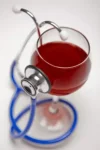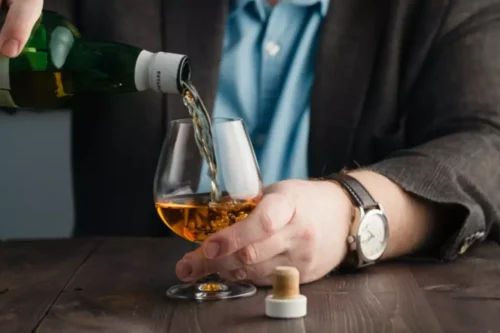How Long Does Alcohol Stay on Your Breath? Find Out Here

A small dose of alcohol (1 to 2 drinks) lowers inhibitions and the ability to concentrate. A medium dose (3 to 4 drinks) causes slurred speech, altered emotions, and poor vision. A higher dose (5 drinks or more) can cause uncontrolled urination, alcohol poisoning, and breathing problems. While these techniques create the illusion of sobriety, they have no effect on BAC. Although eating before a night of drinking will slow down alcohol absorption, it will not keep you sober as you continue to drink.
- However, the organ can only metabolize a little at a time, leaving the excess to circulate throughout your body.
- When you drink alcohol, it is quickly absorbed in the stomach and small intestines.
- The blood distributes the metabolized drug to all your body parts.
- Some people experience a severe form of alcohol withdrawal known as DTs.
How Long Does Alcohol Stay in Your System?
According to National Institute on Alcohol Abuse; While water itself doesn’t directly flush alcohol out of your system, it plays a crucial role in the detox process. Rehydrating by drinking water can alleviate the symptoms of dehydration, such as headache and dizziness, but it does not speed up the metabolism of alcohol in your liver. For a person weighing 150 pounds, for example, one standard drink will increase their blood-alcohol concentration by about 0.02%, but the body can only remove about 0.016% per hour on average. Therefore, even if you consume only one drink per hour, your blood alcohol concentration (BAC) will continue to increase.
Drink Plenty Of Fluids
Throughout the night, your liver will have time to metabolize (break down) all the alcohol in your system. But it may be possible to detox in a hospital without going through the ER. In recent years, as the opioid epidemic has exploded, more hospitals have expanded their addiction services. Some prescribe buprenorphine, a narcotic that eases the symptoms of opioid withdrawal without making users feel “high.” Talk to your doctor about whether hospital detox would be right for you. The taper period varies depending on how long you’ve been using the drug and how much you’ve been taking.
Tips for Mindful Drinking
Your liver is responsible for breaking down the majority of alcohol in your body. As a matter of fact, 90% of the metabolism of alcohol into water and carbon dioxide is performed by the liver. The remaining 10% is removed through the lungs (breathing), kidneys (urine), and skin (sweating). A useful trick for pacing is to have one glass of water or a non-alcoholic drink between alcoholic drinks.

If someone with a BAC level of 0.08 stops drinking, it will take roughly 6 hours for them to sober up. In urine, alcohol can be detected from 12 to 130 hours if a person has been drinking excessively. Phosphatidylethanol (PEth), a biomarker that reflects alcohol intake, can be detected up to 14 days in urine. Alcohol can be detected from 12 to 24 hours in the breath, as well as in saliva. And when tested in the hair, especially at the root, alcohol can be detected up to 90 days after a person has stopped drinking. That’s why many of us wonder if a month of avoiding drinking is enough to “reset” your liver back to normal.

[Podcast] Episode 7: The Woman Changing How the World Sees Non-Alcoholic Drinks with Victoria Watters
While time and liver metabolism are the primary factors, there are steps you can take to support this process. Our approach combines medication-assisted treatment with personalized coaching to provide comprehensive support throughout your journey. To take the first step towards a healthier, alcohol-free life, schedule an appointment with us today or give us a call. Our dedicated team members are ready to assist you on your path to recovery. If your body has developed a tolerance to alcohol, completely stopping—and attempting to flush it out of your system—can lead to withdrawal. Alcohol withdrawal has a set of complex symptoms when someone abruptly stops or reduces their consumption.

A doctor might also recommend certain dietary changes or supplements, such as vitamins B-1 (thiamin) and B-9 (folic acid), to help the body cope with the decreasing alcohol intake. When detox occurs in a medical center, healthcare professionals often use medication to treat the symptoms of withdrawal. Doctors may prescribe benzodiazepines to manage seizures and other alcohol withdrawal symptoms. Many people stop experiencing alcohol withdrawal symptoms four to five days after their last drink. Dehydration can occur when drinking alcohol, so avoiding salty foods is important.
That’s why it’s worth keeping tabs on how a drink makes you feel well before you get to that point, so you can know when it’s time to take a break or cut yourself off. If you want to minimize your chances of getting drunk, eat something with your drink and alternate between alcohol and a glass of water. So after one drink, your BAC should be back below the “drunk” threshold about 60 minutes after you drain your glass. But again, this is a generalization and could be different depending on the person and situation. You’ll start noticing the milder effects of alcohol within 15 to 45 minutes of sipping (think change in mood and maybe you’ll feel a little warm). Here’s everything you need to know — from what counts as drunk, to how your body processes booze, to how long the alcohol effects hang around.
- The quicker you seek help, the more likely you are to minimize potentially fatal complications.
- Also, ignore the myth that your body recognizes different liquors differently.
- While drinking a lot of water is not the perfect answer to how to flush alcohol from urine, it is a big help because of all the released toxins.
- Women have less dehydrogenase, which is a liver enzyme that breaks down alcohol, than men.
- National Institute of Diabetes and Digestive and Kidney Diseases.
Think of it as giving your liver a little boost in the right direction. “Nutrition therapy is very important in terms of feeding the liver and giving it the building blocks it needs to restore itself,” says Dr. Lindenmeyer. If your liver has taken a hit from prolonged how to get alcohol out of your system alcohol use, there are ways to give it — and the rest of your body — a break. As mentioned above, it is not advisable to do the withdrawal process on your own. You can, however, take tips and suggestions on how you can make the experience a little easier.



